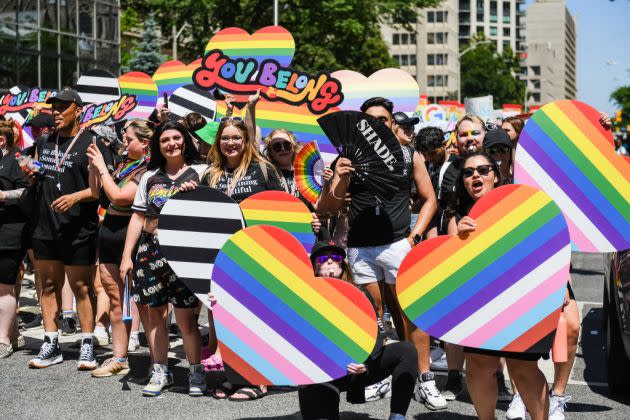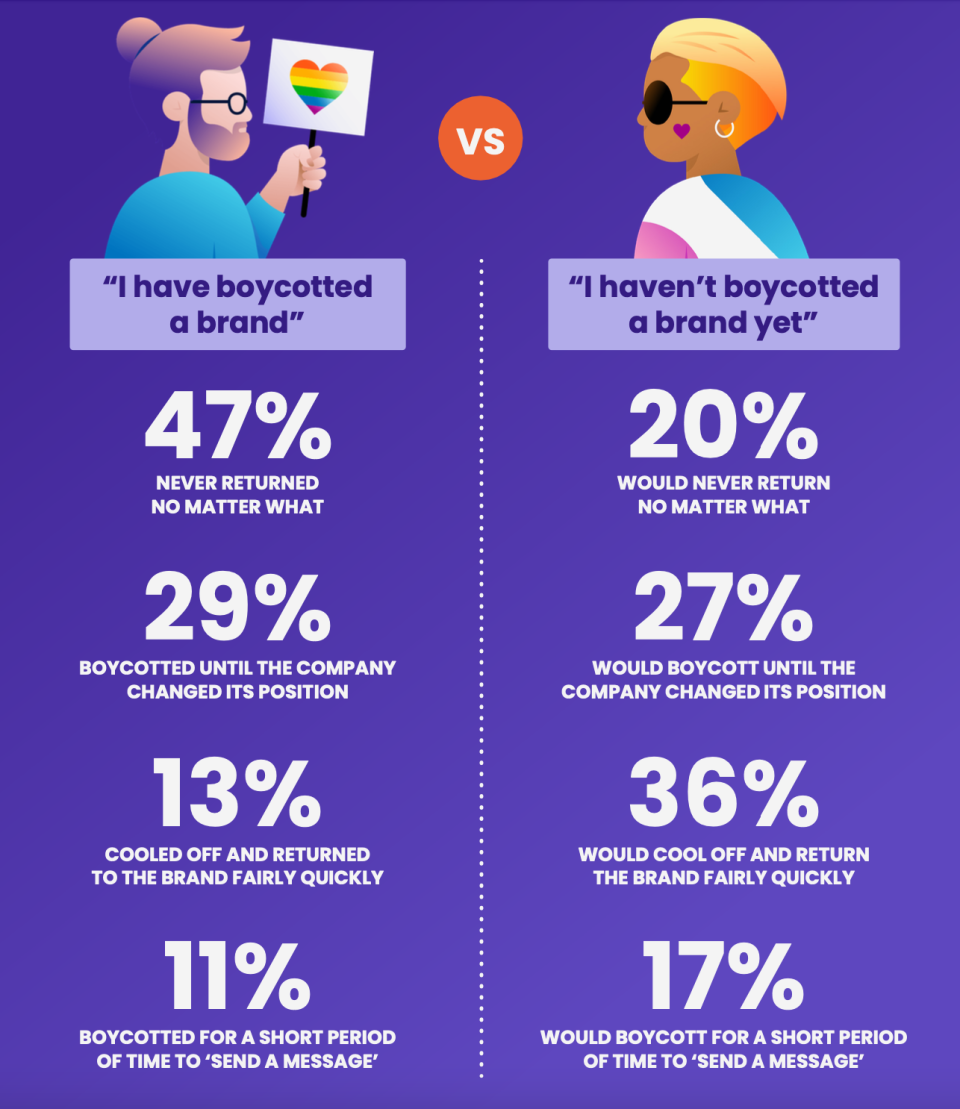Disqo Teams Up With Do the Werq for LGBTQIA+ Consumer Insights Report

To better understand consumer behavior and sentiments toward boycotts, wokeness and the surrounding CX impact, Disqo partnered with the inclusion forum and advertising agency Do the Werq on an LGBTQIA+ advertising report called “From Bold to Backlash.”
Notably, the authors of the report call out “boycotting” and “wokeness” as two terms that have been “relatively overused and poorly understood” in countless conversations occurring in recent months. In the report, the companies make the case that brand affiliation with these terms deserves exploration, and have conducted a survey of more than 10,000 U.S. consumers who shared their takes on the terms within the context of brands’ support for the LGBTQIA+ community and, more generally, DE&I.
More from WWD
“The awareness of our marketplace power based on our population growth is invigorating,” said Kate Wolff, co-chair of programming and operations at Do the WeRQ and chief executive officer and founder of Lupine Creative. “Yet still, we are unnerved by safety concerns over the threat of policies that would hurt us. The net is: we need active allyship from brands. We need them to show up year-round and in everything they do — not just their messaging. We also need them to learn from brands that have backtracked and misstepped.”
As brands proudly support the LGBTQIA+ community, the companies’ report points to some being protested or even boycotted, receiving backlash from vocal groups of consumers. This backlash has often led to brands “backtracking” in support of social issues.
But what impact does backtracking have on the consumers who were in favor of support for the cause? According to the survey, 35 percent of consumers will continue to buy/use the brand for now but look for other brands more supportive of their cause, while 22 percent will immediately stop buying/using the brand and 20 percent will immediately stop buying/using the brand and tell people within social circles that they do not support it. Only 23 percent said they would continue to buy/use the brand with brand support remaining relatively unchanged.
Within this finding, Wolff said, it is important to also notice and appreciate the generosity of the LGBTQIA+ community. “While almost one-quarter of U.S. adults say that they would stick with a brand after it backtracks support for an issue they care about, LGBTQ+ folks fall around 36 percent. This is the community virtue-signaling to brands that they need to keep trying to support us — and they do. We’re allowed to make missteps toward progress, but progress is essential.”
Overall, boycotting was deemed common and acceptable by most consumers. Fifty-five percent of survey respondents said they have boycotted a brand because they disagreed with its position on a social issue. Even though more LGBTQIA+ consumers said they would be less likely to participate in a boycott based on backtracking on an issue, 80 percent also said they have boycotted in general. And 70 percent of consumers say they think boycotts are appropriate and a valid way to express consumer feedback.

At the same time while “wokeness” has become a well-known term, the authors of the report say it may be losing its meaning. While 70 percent of consumers said they are familiar with the term, 40 percent say they never liked the term (higher among older consumers and non-LGBTQIA+ adults) with 30 percent saying the term has never been useful and 38 percent saying they believe the term has been hijacked. Only 22 percent of consumers say they believe the term remains important in advocating for social justice issues (higher among Gen Z and LGBTQIA+ adults).
When discussing brand influence over LGBTQIA+ rights, the authors of the report found consumers were confident about the potential impact. About 75 percent think it’s important for brands to actively prevent LGBTQIA+ people from discrimination, and about 33 percent think it’s “extremely important.” Additionally, 71 percent of consumers believe brands can impact LGBTQIA+ perceptions in society and 62 percent believe they can impact LGBTQIA+ political decisions.
Still, social issues, especially LGBTQIA+ topics, remain challenging for brands. Compared to last year’s results collected during Pride Month, this year’s results collected before Pride Month show a 23-point drop in LGBTQIA+ representation.
“In June 2022, nearly half of consumers recalled LGBTQ+ ads,” Wolff said. “In May 2023, a mere 27 percent could remember seeing ads that included us, a whopping 23-point chasm. We suspected as much and our new data makes it crystal clear that LGBTQ+ inclusivity in advertising isn’t happening sufficiently beyond June.”
This should be a wake-up call for brands, she said, “assuming they have a business priority for growth among the fastest growing minority group in the U.S. Even within the LGBTQ+ community, we see a significant 12-point gap between the last year and this year. This is a strong indicator that inconsistent marketing to LGBTQ+ audiences is raising eyebrows and stirring perceptions of inauthenticity.”
Moreover, Wolff told WWD that for brands and retailers, “the time is now to step up support for our community. It’s more than the right thing to do — it’s a business imperative. Our growing community is changing by the minute and is complex with intersectionality. People want to be sure that brands acknowledge the truth of who they are and listen and learn. In turn, they want to know what your brand stands for, really, beyond token support. The data shows that members of our community will return to brands who misstep, but the ‘grace gap’ will surely close as our population grows and younger generations come into their full marketplace power.”
Best of WWD

